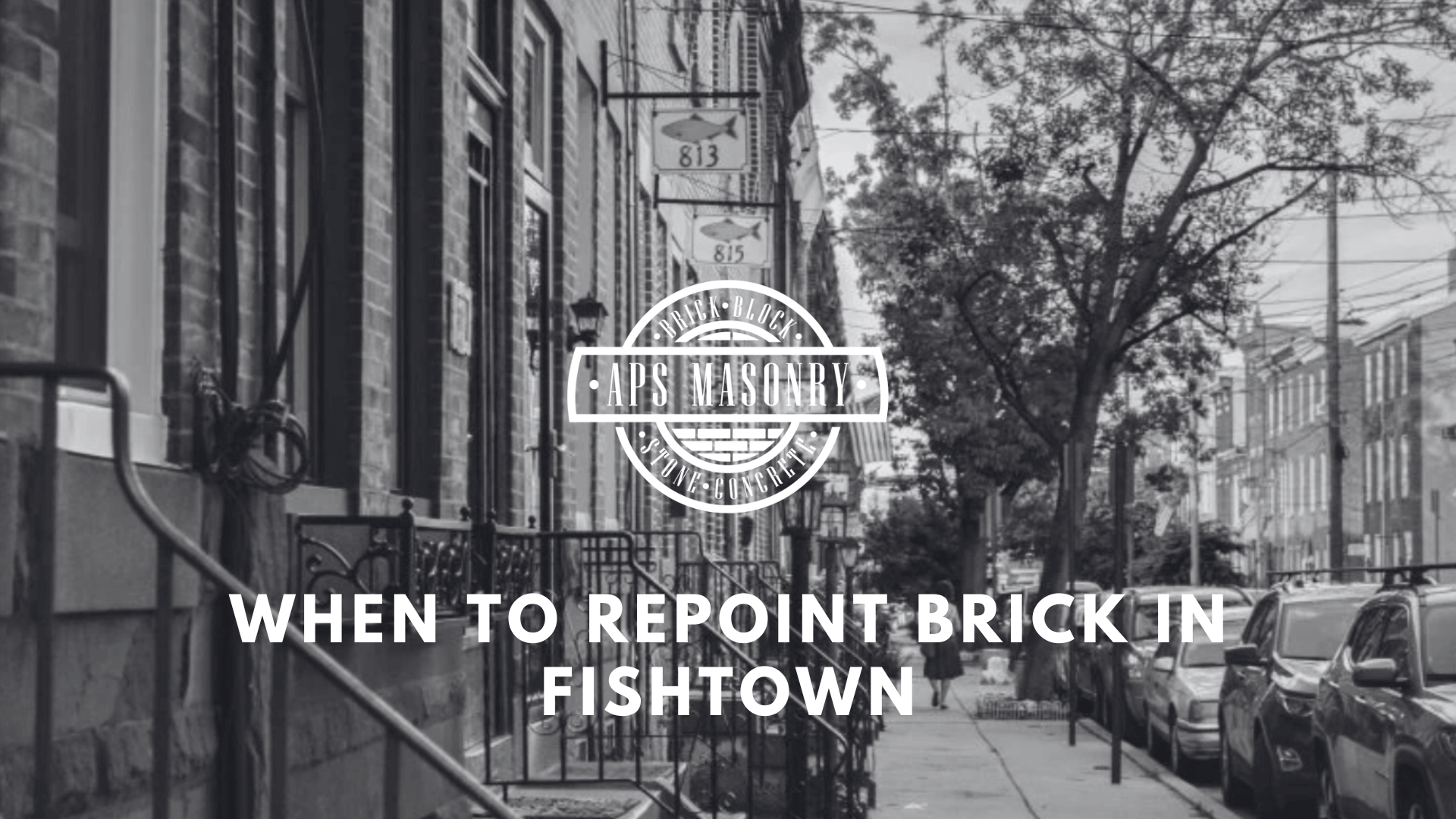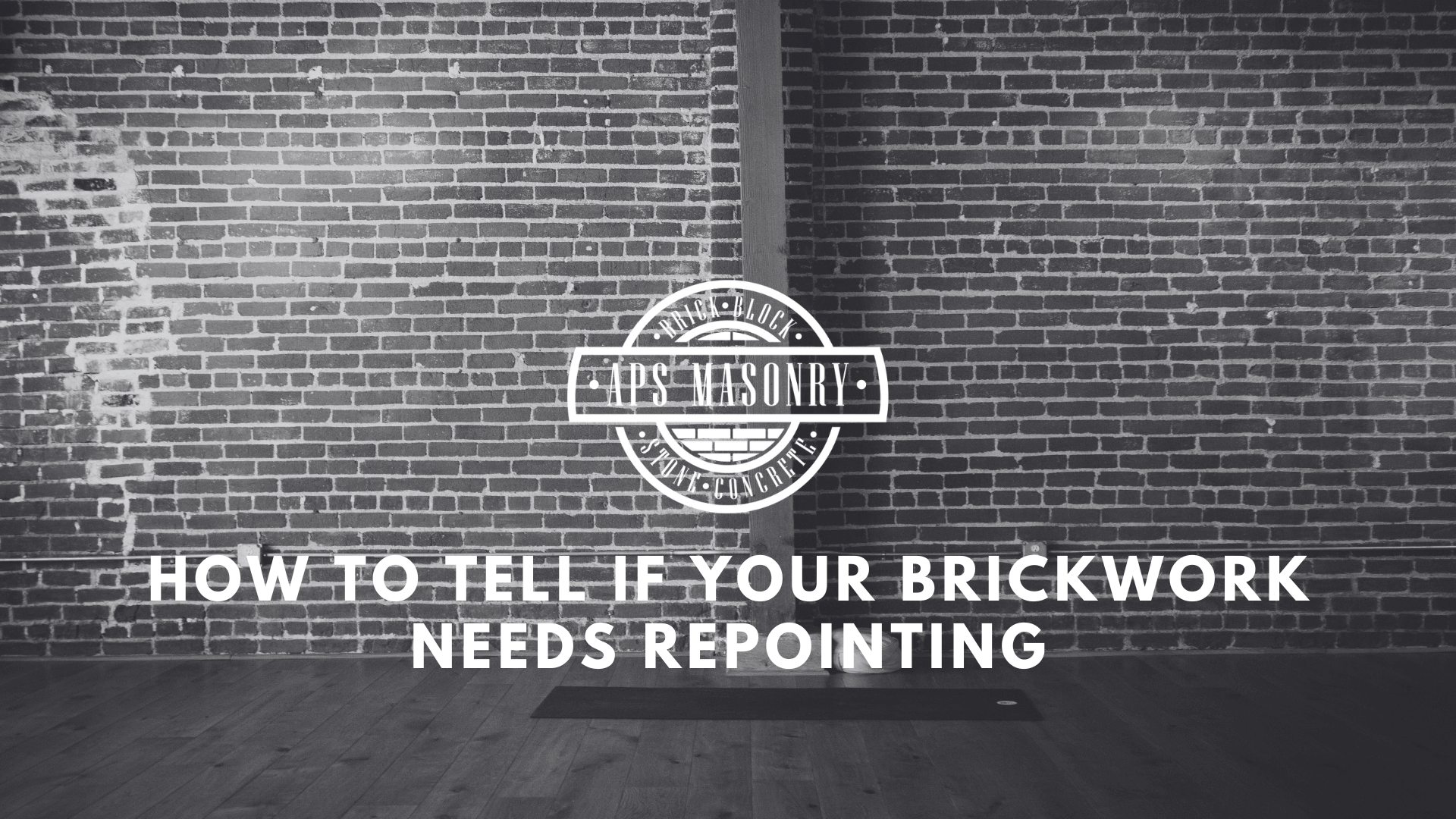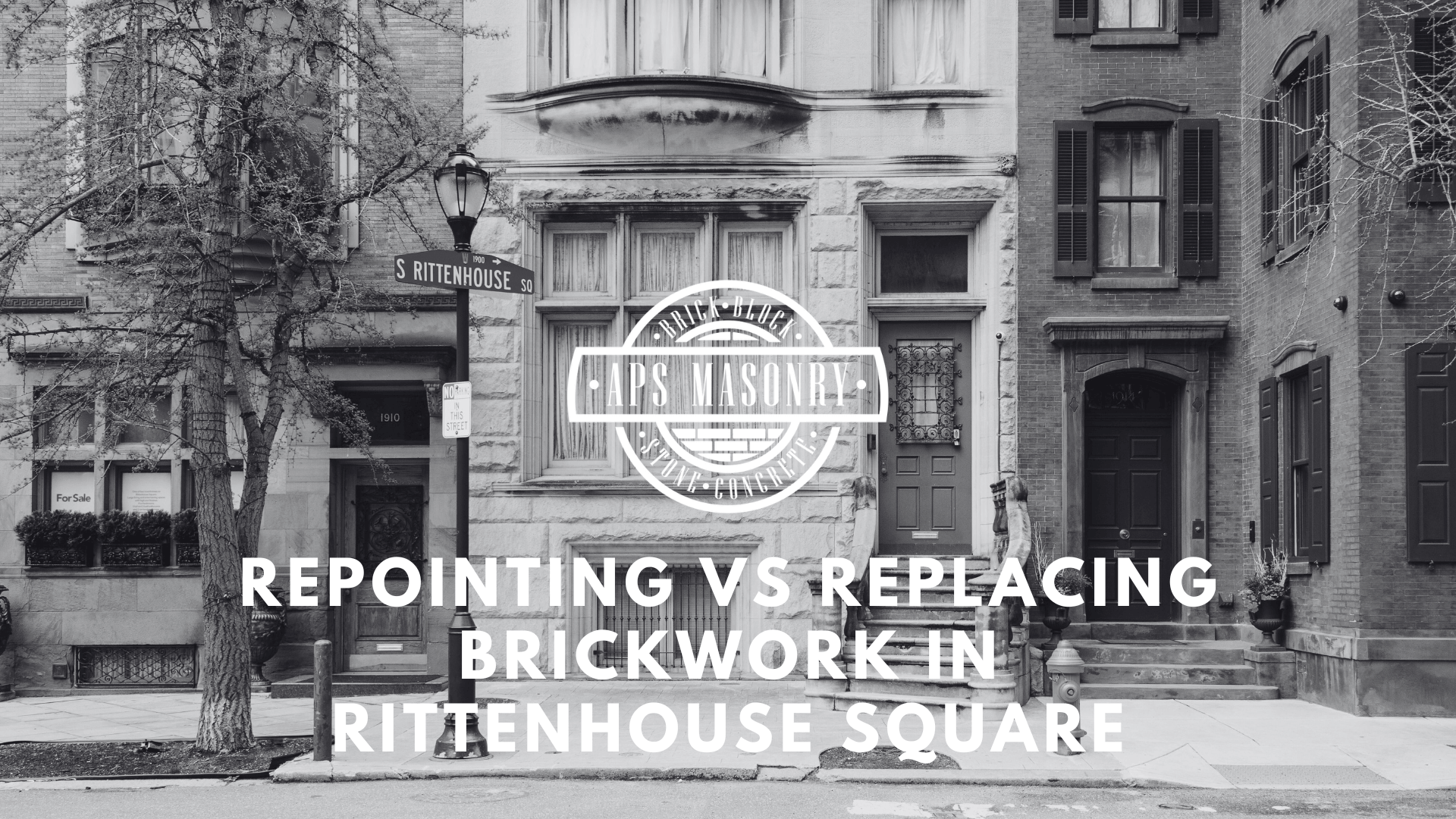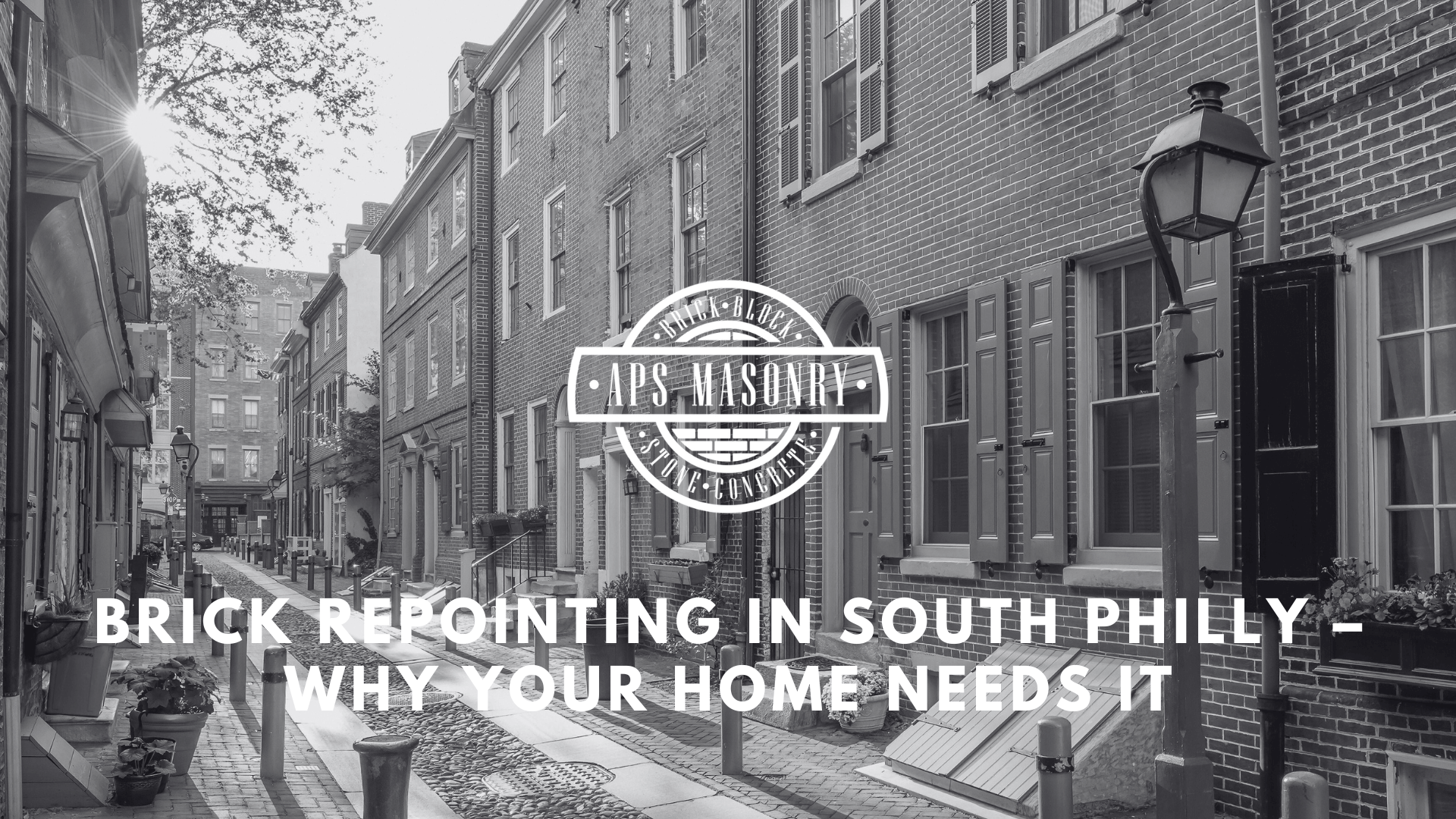How to Tell If Your Brickwork Needs Repointing
Strong mortar keeps Philadelphia’s brick homes stable, sealed, and built to last.

Philadelphia brick is tough. Fishtown brickwork is tougher.
The masonry walls across this neighborhood were built with solid materials, bonded with lime-rich mortar, and designed to last through weather, heat, and decades of exposure. Pointing keeps that system intact. It stops water from entering the wall, reinforces the joints, and maintains the structural integrity of brick, stone, and chimney stacks.
Fishtown homes show their age through fine cracks, missing mortar, and shifting corners. These are signals that repointing is due. Matching the original materials, aligning texture, and protecting the masonry surface are essential to preventing water damage and erosion. When repointing is done on time, it improves curb appeal, avoids larger repairs, and adds long-term value to the property. Every successful pointing project begins with catching the right moment.
Mortar joints should be tested every 20 to 30 years. Earlier if the wall faces heavy exposure or if previous pointing was done with the wrong materials. Fishtown homes built before 1950 often used lime-based mortar, which deteriorates faster when patched with Portland cement. This mismatch traps moisture, damages the structure, and accelerates erosion.
You should schedule repointing when joints are recessed more than ⅛ inch, when bricks feel loose under pressure, or when water stains appear along the interior face of the masonry wall. Ignoring these signs allows moisture to enter the wall system, leading to cracked faces, shifting corners, and interior water damage. Timely repointing protects the property, preserves the wall texture, and reinforces the structure without requiring full reconstruction.
Spotting early signs of deterioration prevents small repairs from becoming full-scale masonry projects. Repointing is about timing. Too early, and you risk unnecessary removal of functional mortar. Too late, and the structure begins to separate. Philadelphia homeowners often misjudge this line. Fishtown properties in particular, exposed to street-level traffic vibrations and seasonal freeze-thaw cycles, show specific wear patterns that demand attention.
Common Signs You Need Repointing:
Visible gaps between bricks or stones
Mortar that crumbles when touched
Jagged cracks running along joints, not just through bricks
Dark streaks or damp spots along interior or exterior walls
Loose bricks or ones that shift when pressed
Powdering or dust collecting on window sills
Recessed mortar deeper than surrounding joints
Uneven wall surfaces caused by loss of bond
Homeowners often focus on cracks in bricks instead of the mortar surrounding them. The condition of the joint controls structural integrity far more than the surface condition of the brick face. Replacing individual bricks won't stop water damage if the pointing is already failing. The mortar is the system, not the filler.
Most homeowners wait for visible damage. That’s the mistake. Timing should be based on field conditions, not surface appearance. A wall can look clean but still fail water tests. Chimney stacks can remain straight while mortar has already separated behind the joints. Relying on visible cracks alone ignores what’s happening beneath the surface.
What contractors test for before scheduling repointing:
Mortar depth loss greater than ⅛ inch along multiple sections
Uneven absorption during water spray testing
Separation behind brick faces when probed
Sound change during tapping along the wall surface
Early signs of displacement near corners and expansion joints
In Fishtown, many buildings hide their deterioration behind paint or old stucco. We often strip surface layers only to find powdery mortar and hollow sections beneath. Pointing is not just about repair, it’s about timing that protects the structure before deeper repairs are needed.
Read more about why your Philly home needs repointing.
Delaying repointing adds real cost. Small cracks in mortar lead to moisture intrusion. Moisture causes brick faces to erode, internal joints to loosen, and structural integrity to decline. What starts as a few dollars in repairs becomes thousands when brickwork fails, chimneys need rebuilding, or foundation exposure worsens. Water damage, shifting walls, and increased erosion force full reworking instead of simple pointing. Property value drops when visible deterioration appears. Repair jobs that skip proper testing, correct mortar mix, or clean fill work cost more later because poor materials and methods shorten lifetime of masonry services. APS’s experience shows that early, precise repointing reduces long‑term expenses and preserves appearance and safety.
Across Philadelphia neighborhoods, stone pointing projects that start before damage runs deep often fall in the $4,500–$8,000 range depending on scale. Delays push cost beyond $20,000 when sections need reconstruction including permits, scaffolding, and labor for extensive repair. Investing in repointing now protects against market devaluation, guarantees better durability, and makes every dollar spent count toward improving structure rather than chasing damage.
Check out our gallery to see the work which didn’t cost tens of thousands!
Brick and stone pointing depends on accurate material selection and precise method. Matching mortar isn't just visual, it controls movement, drainage, and bond strength. In Fishtown, where stone is often mixed with brick along the same wall, poor repointing causes joints to crack, retain moisture, and fail under expansion. The contractor must identify original materials, test for compatibility, and apply only what matches both the look and behavior of the wall.
Texture matters. So does tooling. Lime mortar joints require soft-bristle brushing and longer cure times. Portland-based materials demand tighter compression and faster control. Tool choice, pressure, and timing affect durability and appearance. When these details are wrong, repairs stain unevenly, detach early, or create false edges that trap water behind the joint.
Repointing should create both structural reinforcement and visible consistency. Good services do both. At APS, the team inspects every site for depth loss, evaluates joint spacing, and chooses a method based on the building’s original form. Every repair must improve structure without covering the problem. Every finish must fill the joint without standing proud of the brick. These are the differences between beauty and surface confusion, between value and wasted money.
Some companies offer one product for every project. We don’t. Our pointing services are tailored to building type, mortar age, and environmental wear. The site determines the approach. The materials control the method. The results speak for the wall.
Chimneys fail faster than walls. They face more exposure, absorb more water, and receive less maintenance. In Fishtown, most masonry chimneys are original to the building. Mortar joints loosen at the crown, then gaps develop below the flue. These open joints allow water to fill the voids between bricks. Damage spreads downward, pulling moisture into the wall system and weakening the structure at every level.
The contractor’s job is to test the full height of the stack, not just the visible face. Our team checks for lateral movement, loose capstones, and hairline separation around metal flashing. Inside the attic or crawl space, we review where the chimney meets wood framing. If the fill is missing or cracked, the load shifts. If the crown is soft or hollow, water damage is active. Compared to wall failure, chimney collapse happens faster and costs more to correct.
Masonry wall safety depends on continuity. One failed joint above the roofline can destroy bond below grade. The safest buildings are the ones with matched pointing, proper slope at wash joints, and uninterrupted compression. APS crews test the full chimney and adjacent walls during every site visit. That includes water testing, probe depth checks, and soft-tool brushing to verify integrity without damaging original material. We assess all structural elements, not just cosmetic concerns, and provide clear options based on scope and need.
Repointing chimneys is not cosmetic. It's structural. It protects property value, prevents fire risk, and keeps load-bearing masonry from collapsing under weight. While aesthetic alignment matters, it’s the precision of materials and method that determines durability. Our representative will walk the site, learn how the building responds to moisture, and offer solutions tailored to the property, not a one-size-fits-all service commonly found with general masonry companies.
When you notice gaps, crumbling joints, or water stains in your brickwork, don’t settle for temporary fixes. Contact APS Masonry Contracting for a free estimate and site inspection. Our professional team tests mortar depth, matches materials, and applies methods built for Fishtown’s climate and building stock.
APS specializes in masonry walls, masonry chimney repair, brick and stone pointing, and historic restoration across Philadelphia. Choosing APS means hiring an experienced team with proper tools, and a commitment to durable work. Let us protect your property’s value, restore your structure’s strength, and deliver workmanship that lasts. Call (215) 559‑4582 or visit APS Masonry Contracting today to schedule your project and improve both the appearance and safety of your home.

Strong mortar keeps Philadelphia’s brick homes stable, sealed, and built to last.

That beautiful brick façade isn't going to fix itself; our Philadelphia masonry team is ready to restore your house, one joint at a time.

Cracked joints, loose mortar, and worn brickwork don’t fix themselves. Repointing protects your South Philadelphia home before the structure pays the...